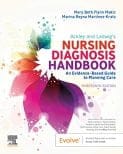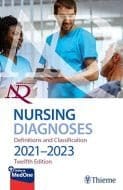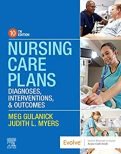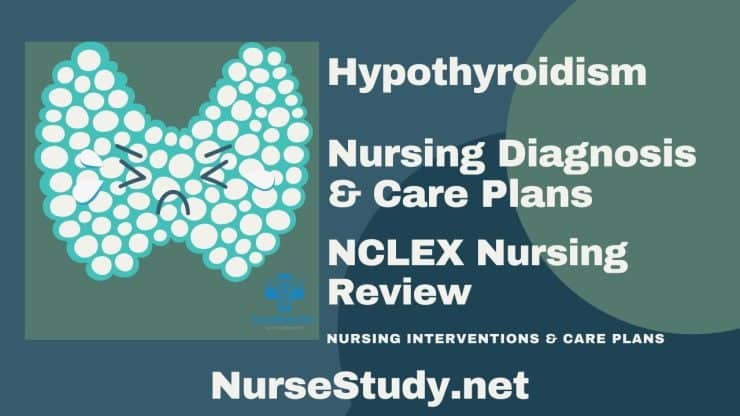Hypothyroidism is a disorder in which the thyroid produces and releases insufficient thyroid hormone into the bloodstream, also known as underactive thyroid, which causes fatigue, weight gain, and an inability to tolerate cold temperatures.
Types of Hypothyroidism
Central hypothyroidism. The pituitary gland, the hypothalamus, or both are unable to stimulate thyroid hormone production.
Secondary or pituitary hypothyroidism. The cause is solely a problem in the pituitary gland itself.
Tertiary or hypothalamic hypothyroidism. This refers to a hypothalamic condition that causes insufficient TSH secretion as a result of diminished TRH stimulation.
Cretinism. The thyroid disease that is present from birth.
Myxedema or severely advanced hypothyroidism. Myxedema occurs when the thyroid levels are exceedingly low.
Causes of Hypothyroidism
- Inflammation of the thyroid gland which damages the gland’s cells.
- Autoimmune diseases. Autoimmune thyroiditis or Hashimoto’s disease is the most common cause of hypothyroidism in adults.
- Atrophy of the thyroid gland. When aging, the thyroid gland shrinks in size.
- Therapy for hyperthyroidism, such as radioactive iodine and thyroidectomy.
- Medications- TSH production can be reduced by certain drugs, iodine compounds, and antithyroid medicines.
- Iodine deficiency or excess. The thyroid gland is affected by an imbalance in iodine levels in the body.
- Autoimmune or Hashimoto’s thyroiditis. This happens when the immune system attacks the thyroid gland.
- After pregnancy. This is often referred to as postpartum thyroiditis.
Signs and Symptoms of Hypothyroidism
- Fatigue
- Numbness and tingling in the hands
- Constipation
- Weight Gain
- Muscle Weakness
- High blood cholesterol levels
- Depression
- Cold Intolerance
- Dry, coarse skin and hair
- Decreased libido
- Frequent and heavy menstrual period
- Physical changes in the face including drooping eyelids, puffiness in the eyes and face
- Hoarseness of voice
- Brain fog
Risk Factors for Hypothyroidism
Hypothyroidism can affect people of all ages, genders and ethnicities, it is a common condition particularly among the following:
- Women above the age of 50
- Men who have had radiation therapy for head and neck cancer
- Patients who have primary or thyroidal hypothyroidism
- Family history of thyroid disease
- Family history of autoimmune disease
- Patients with autoimmune disease
- Caucasian or Asian ethnicity
- Women experiencing hormonal changes due to pregnancy, childbirth, or menopause
- People with chromosomal abnormalities like Down syndrome or Turner’s syndrome
Goals and Expected Outcomes
- Achieve optimal thyroid hormone levels.
- Expected Outcomes: The patient’s thyroid hormone levels (TSH, T3, and T4) are within the normal range, indicating adequate thyroid function.
- Relieve symptoms of hypothyroidism.
- Expected Outcomes: The patient experiences a reduction in symptoms such as fatigue, cold intolerance, weight gain, dry skin, constipation, and depression.
- Maintain a healthy weight.
- Expected Outcomes: The patient maintains a stable weight within a healthy range through proper diet, exercise, and adherence to prescribed medications.
- Improve energy levels and overall well-being.
- Expected Outcomes: The patient reports increased energy levels, improved mood, and an overall sense of well-being.
- Prevent complications associated with hypothyroidism.
- Expected Outcomes: The patient receives appropriate education and understands the importance of adhering to treatment to prevent complications such as cardiovascular disease, infertility, and mental health issues.
- Promote patient education and self-care.
- Expected Outcomes: The patient demonstrates understanding of the condition, its management, and the importance of regular follow-up appointments. They actively participate in self-care activities and can recognize signs of thyroid hormone imbalance.
Nursing Assessment and Rationales for Hypothyroidism
Obtain a detailed medical history: Assess the patient’s symptoms, past medical conditions, and any family history of thyroid disorders to identify risk factors and understand the patient’s specific situation. Rationale: The medical history helps determine the possible causes of hypothyroidism and guides the development of an appropriate care plan.
Perform a physical examination: Assess the patient’s vital signs, general appearance, weight changes, skin condition, hair texture, reflexes, and mental status. Rationale: Physical examination findings can reveal common manifestations of hypothyroidism, such as bradycardia, weight gain, dry skin, brittle hair, delayed reflexes, and cognitive changes.
Conduct a comprehensive symptom assessment: Evaluate the patient’s experience of fatigue, cold intolerance, constipation, weight gain, depression, muscle weakness, menstrual irregularities, and changes in cognition. Rationale: Symptom assessment helps identify the specific manifestations of hypothyroidism, determine the severity of symptoms, and monitor changes in the patient’s condition over time.
Order laboratory tests: Include thyroid function tests (TSH, T3, T4), lipid profile, and other relevant tests based on clinical judgment. Rationale: Laboratory tests are essential in confirming the diagnosis of hypothyroidism, assessing the severity of thyroid hormone deficiency, and monitoring the effectiveness of treatment.
Assess the patient’s psychosocial well-being: Inquire about the patient’s emotional state, coping mechanisms, support systems, and impact of hypothyroidism on their daily activities and quality of life. Rationale: Hypothyroidism can have significant psychological and social implications, including mood disturbances and decreased functional ability. Assessing psychosocial well-being helps tailor nursing interventions and support the patient’s emotional needs.
Evaluate the patient’s understanding and knowledge: Assess the patient’s awareness of hypothyroidism, its management, and the importance of medication adherence and regular follow-up. Rationale: Evaluating the patient’s knowledge and understanding helps identify knowledge gaps and enables the nurse to provide appropriate education and support.
Nursing Interventions and Rationales for Hypothyroidism
Administer thyroid hormone replacement medication as prescribed. Rationale: Hypothyroidism is characterized by insufficient thyroid hormone production, and medication replacement is essential to restore hormone levels and alleviate symptoms.
Educate the patient about the importance of medication adherence and proper administration. Rationale: Medication adherence is crucial for maintaining stable thyroid hormone levels. Patient education promotes understanding, encourages compliance, and empowers the patient to actively participate in their treatment.
Monitor the patient’s vital signs, including heart rate, blood pressure, and temperature. Rationale: Hypothyroidism can lead to bradycardia and decreased body temperature. Regular monitoring helps identify any abnormalities and ensures timely intervention.
Monitor and document the patient’s weight. Rationale: Hypothyroidism can contribute to weight gain or difficulty losing weight. Regular weight monitoring helps identify trends and adjust treatment plans accordingly.
Assist the patient in maintaining a balanced diet and healthy lifestyle. Rationale: A nutritious diet and regular exercise can support weight management and overall well-being. Providing guidance and resources on healthy eating habits promotes optimal health outcomes.
Monitor and support the patient’s mental health. Rationale: Hypothyroidism can lead to depression, anxiety, and cognitive changes. Regular assessment of the patient’s mental health status allows for appropriate interventions, referrals, and support.
Encourage the patient to engage in regular physical activity. Rationale: Exercise promotes metabolism, weight management, and overall well-being. Encouraging physical activity supports the patient’s overall health and may help alleviate some symptoms of hypothyroidism.
Provide emotional support and counseling as needed. Rationale: Hypothyroidism can have a significant impact on the patient’s emotional well-being. Offering empathy, active listening, and counseling support can help the patient cope with the emotional challenges associated with the condition.
Collaborate with the healthcare team, including and dietitians, for comprehensive care planning. Rationale: Collaborating with other healthcare professionals allows for a multidisciplinary approach to managing hypothyroidism. It ensures coordinated care, comprehensive treatment plans, and optimal outcomes for the patient.
More Nursing Diagnoses for Hypothyroidism
- Fatigue related to decreased metabolic rate and inadequate thyroid hormone levels.
- Impaired Thermoregulation related to decreased metabolic rate and altered heat production.
- Imbalanced Nutrition: More than Body Requirements related to decreased metabolic rate and weight gain.
- Constipation related to decreased gastrointestinal motility and decreased metabolic rate.
- Disturbed Sleep Pattern related to altered hormone levels and fatigue.
- Body Image Disturbance related to weight gain and changes in physical appearance.
- Risk for Impaired Skin Integrity related to dry, flaky skin and decreased tissue perfusion.
- Risk for Ineffective Coping related to changes in body function and altered self-image.
- Impaired Memory related to altered hormone levels and cognitive changes.
- Risk for Infection related to decreased immune response and altered tissue integrity.
Nursing References
Ackley, B. J., Ladwig, G. B., Makic, M. B., Martinez-Kratz, M. R., & Zanotti, M. (2020). Nursing diagnoses handbook: An evidence-based guide to planning care. St. Louis, MO: Elsevier.
Gulanick, M., & Myers, J. L. (2022). Nursing care plans: Diagnoses, interventions, & outcomes. St. Louis, MO: Elsevier.
Ignatavicius, D. D., Workman, M. L., Rebar, C. R., & Heimgartner, N. M. (2018). Medical-surgical nursing: Concepts for interprofessional collaborative care. St. Louis, MO: Elsevier.
Silvestri, L. A. (2020). Saunders comprehensive review for the NCLEX-RN examination. St. Louis, MO: Elsevier.
Best Nursing Books and Resources
These are the nursing books and resources that we recommend.
NurseStudy.net is a participant in the Amazon Services LLC Associates Program. Included below are affiliate links from Amazon at no additional cost from you. We may earn a small commission from your purchase. Please see our Privacy Policy

The Nursing Diagnosis Handbook E-Book: An Evidence-Based Guide to Planning Care
This is an excellent reference for nurses and nursing students. While it is a great resource for writing nursing care plans and nursing diagnoses, it also helps guide the nurse to match the nursing diagnosis to the patient assessment and diagnosis.
This handbook has been updated with NANDA-I approved Nursing Diagnoses that incorporates NOC and NIC taxonomies and evidenced based nursing interventions and much more.

NANDA International Nursing Diagnoses: Definitions & Classification, 2021-2023
All introductory chapters in this updated version of a ground-breaking text have been completely rewritten to give nurses the knowledge they require to appreciate assessment, its relationship to diagnosis and clinical reasoning, and the goal and use of taxonomic organization at the bedside.

Nursing Care Plans: Nursing Diagnosis and Intervention
It contains more than 200 care plans that adhere to the newest evidence-based recommendations.
Additionally, it distinguishes between nursing and collaborative approaches and highlights QSEN competencies.
Disclaimer:
Please follow your facilities guidelines, policies, and procedures.
The medical information on this site is provided as an information resource only and is not to be used or relied on for any diagnostic or treatment purposes.
This information is intended to be nursing education and should not be used as a substitute for professional diagnosis and treatment.


